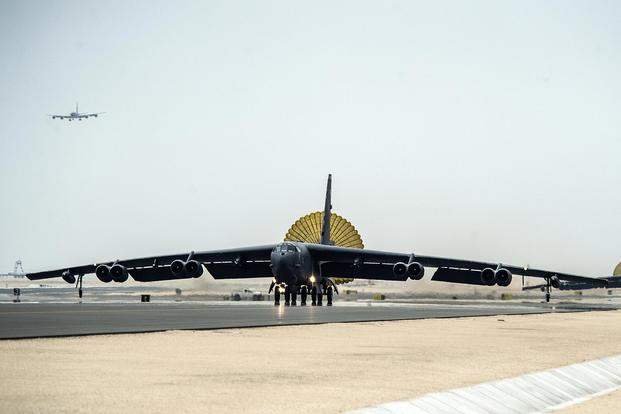The dispute roiling Gulf Cooperation Council countries in the Middle East over Qatar's alleged ties to terrorism has not affected the Air Force's air operations against the Islamic State, the service's top civilian said Monday.
"It's largely a diplomatic issue, and [U.S. State] Secretary [Rex] Tillerson has made some comments … that it hasn't changed our operations" in the air campaign, Air Force Secretary Heather Wilson told audiences at an Air Force Association breakfast in Washington, D.C.
Saudi Arabia, Egypt, the United Arab Emirates, Bahrain, Yemen and Libya suspended diplomatic relations with Qatar early Monday over what they say is Qatar's backing of extremist groups such as the radical Islamist movement of the Muslim Brotherhood, among other issues.
The countries cut off land, air and sea travel to and from the country in an effort to protect their own endeavors in fighting terrorism and extremism.
Outside of Doha, Qatar's capital, the Pentagon has roughly 10,000 military personnel at Al Udeid Air Base, many of whom support Air Forces Central Command in Operation Inherent Resolve, the Defense Department's effort to stamp out ISIS.
The Doha area has been in use by the U.S. since the 1990s. In 2003, groundwork began for the first permanent facilities at Al Udeid.
RELATED: F-15Es, A-10s Leading Air War Against ISIS
U.S. B-52 Stratofortresses landed at the base in April 2016 to begin a bombing rotation against ISIS, replacing B-1B Lancer bombers that returned home for maintenance. The base acts as a major hub for air operations in the Gulf.
During a meeting in Sydney, Australia, Tillerson and Defense Secretary James Mattis on Monday encouraged the nations to cooperate in order to effectively execute their own anti-ISIS agendas.
"We certainly would encourage the parties to sit down together and address these differences," Tillerson said, according to The New York Times.
The Air Force found itself in a similar predicament last year when relations with Turkey became strained after an internal coup against President Tayyip Erdogan. Personnel at Incirlik Air Base -- a joint base operated by the U.S. Air Force and the Turkish air force -- found themselves hunkered down for a few days without power and water.
"They, obviously, are our ally. We stand with them. They're an effective air force, and Incirlik is an important location for our joint fight," then-Air Force Secretary Deborah Lee James told reporters in August. Incirlik, about 100 miles from the border with Syria, plays a strategic role in the fight against ISIS.
The U.S. has manned and unmanned aircraft, including KC-135 Stratotankers, A-10 Thunderbolts and MQ-1 Predators at Incirlik.
-- Oriana Pawlyk can be reached at oriana.pawlyk@military.com. Follow her on Twitter at @Oriana0214.






























